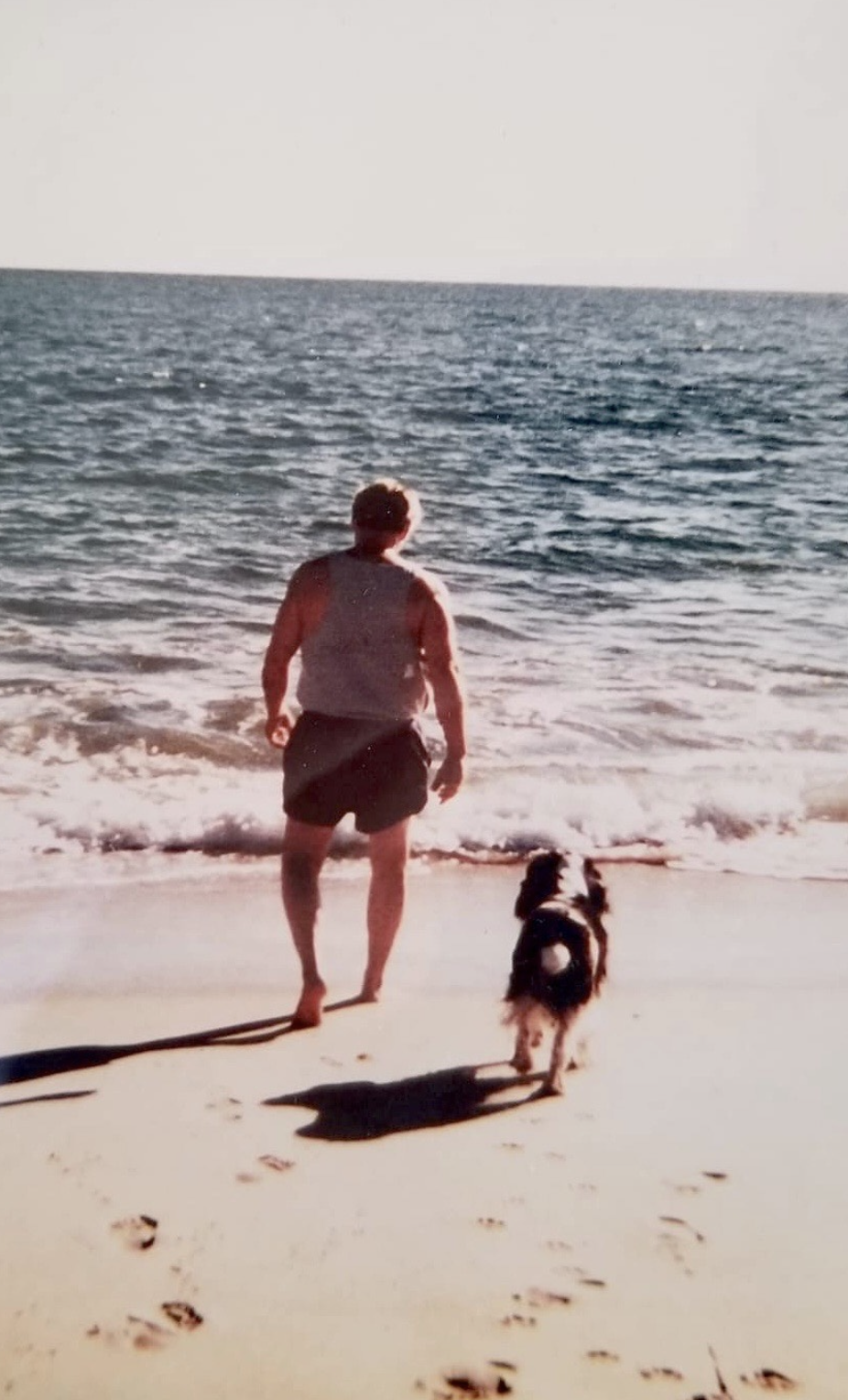My parents used to have a grey miniature schnauzer named Jacques. While his brother Pablo was big and black and thick, Jacques was wiry and small. Over the years, his runtiness and Pablo’s brotherly abuse (stealing food, mounting his haunches) made him kind of squirrely. If he had been a human he would have been diagnosed and put on medication, but Jacques was only a dog, and so he was allowed to lead his neurotic, pampered life.
Jacques was too nervous to be happy, but he could do one thing better than anyone else: play ball. In this case, tennis balls, which slowly turned brown from a daily application of love and saliva. When we learned the green fibers were bad for Jacques’ teeth, my mother began shaving the balls, exposing the thick brown rubber underneath. Because Jacques was no dummy. You couldn’t just give him any old rubber ball. Jacques’ love was particular: only a tennis ball held his attention.
You could throw the ball in any direction, fast and hard or slow and loping, and Jacques would scramble to catch it. If he didn’t get it in mid-air, he ran low to the ground like a racecar, zooming across the lawn. After the ball had stopped, he positioned his nose a few inches away and stared, his little silver butt wiggling in anticipation. He did not look up until the ball was in your hand again, ready to find a new flight path.
Jacques died a few years ago. The last time I saw him, he was pretty decrepit. He still frolicked when I came in the door, but his legs were stiff and arthritic, so he looked like Pepe Le Pew bouncing on the tips of his toes. At night the arthritis got worse, and my mom massaged his skinny legs while Jacques moaned softly. Sometimes I threw the ball for him. My mom wasn’t happy about this—”He can’t do that now,” she said. “He’s old.” But Jacques pounced on the ball, his unbending legs extended like a pair of crutches, and when I tossed the ball up he leapt in the air without grace or ability but with all the force of a young dog’s joy. I like to think that even though each jump hurt him it helped him remember his younger self, and that remembering made him happy.
For me, writing is remembering. It is meshing and digesting and missing what is lost. I generally write about places I am not currently in; I think this is because the act of remembering is easier when there is some distance between the writer and subject, or maybe it is because I am a fiction writer and need to forget the truth a little in order to adapt it for my own purposes. I am not as old now as Jacques was in dog years, but I’m not so young anymore, either. It’s depressing that I can’t jump as high as I used to, but it’s a relief to finally understand what brings me joy. Of course, joy doesn’t come easy. Writing is a huge pain; it takes time and is physically unpleasant; it requires focus and ambition and humility in equal measure; and it is constantly getting in the way of a financially rewarding career. But it is my tennis ball. I still run hard after that stringy thing that holds my attention. Each time I think I’ve got it in my grasp it’s suddenly on the ground again, and then it’s in the air, and then I am watching as it disappears in the distance.
Jessie Marshall grew up in rural Pennsylvania and currently teachs at ‘Iolani School in Honolulu. She has studied theater, literature, and fiction in Ohio, England, and New York, where she received an MFA from NYU. Her fiction has appeared in Gettysburg, Emerson, and Mid-American Reviews, online at Night Train, and will soon be seen in Barrelhouse.



